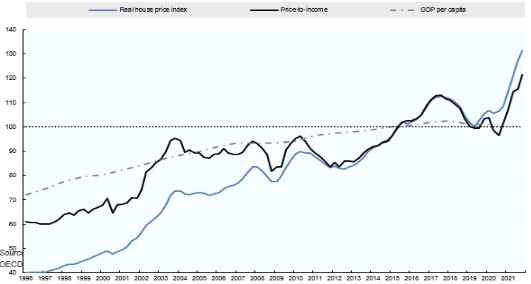Historian, Edward Gibbon, wrote:
“Conversation enriches the understanding, but solitude is the school of genius.”[1]
Rene Descartes, in the “Third Meditation” of his Meditations on First Philosophy, seeks this solitude within himself, to reach the ultimate truth contained within his thoughts. In this text, he sorts through the varieties of ideas existing within his mind, in search of a purity of thought not contaminated by things and senses. This short essay will analyse this text in search of Descartes’ logic, evidence and philosophical argument, as he ruminates on the “idea of God” within himself and posits that it is proof for the existence of God. It will also offer reasonable objection to Descartes’ arguments and conclusion.
Descartes’ Idea of God
The ‘idea of God’, according to Descartes, is his conception of an infinite, most perfect, supremely intelligent and powerful being, which has created both Descartes and the world.[2] Descartes, then states, that careful consideration of these qualities, inherent within the idea of God, makes it unlikely that they originated from him, alone. He then, makes the assumption, that because he is a “finite substance” he cannot be the source of an idea about an infinite substance. Descartes’ reasoning for this assumption rests on the premise that it is impossible to conceive of the lack of something if you have no conception of that something. He states:
“And I must not think…my perception of the infinite…is arrived at…..merely by negating the finite.”[3]
Why this directive to himself? It is based on a presupposition about his conception, or imagining, of the infinite perfection of God. In Descartes’ view, the ‘objective idea’ of something has as much weight as its formal reality. Descartes is remembered for his philosophical definition of existence: “I think, I exist”.[4] He ponders about the possibility of self-authorship, but can never square that with the infinite nature of God; he may inch toward further understanding but God is already omniscient.[5] He later denies invention, altogether, rather qualifying it, as an innate part of his psyche.[6]
His analysis of his ideas and categorisation of them into three groupings: innate, ‘adventitious’ (coming from outside of him), and inventive, was the beginning, in some ways, of a psychological study of ourselves and our thinking. The involuntary responses of his autonomic nervous system to sensory input do not impress Descartes very much and these thoughts are dismissed as inferior to other types of ideas.[7] The sun so small in the sky, to the human eye, is in fact very large but a long way away. Descartes is responding, in the formulations, of his reasoning, to new information recently discovered by Galileo.[8]
Descartes’ reasoning is constructed upon causal principles, involving objective and formal realities, and he seeks to equate this same understanding to the realm of ideas. He posits that the cause of an idea contains as much reality as the idea itself.[9] The observation that every effect must have some preceding cause was a relatively new scientific paradigm during the seventeenth century, and Descartes attempts to bring this methodology to his argument. He then invokes the ‘Trademark’ argument, claiming that the idea of God has been implanted by God as a ‘maker’s mark’.[10] This argument is considered to be an ‘a posterior’ argument, after the fact.[11] That Descartes imagined a perfect God in his mind, therefore, for him, makes it a fact; from this he deduces the existence of God.
However, his underwhelming appreciation of the influence of cultural assumptions in his thinking, traditional knowledge handed down over centuries by his parents, grandparents, etc, etc; especially when it comes to the very idea of God, is apparent to this modern reader. Descartes does acknowledge a chain of relationship between ideas, when he states:
“One idea may perhaps originate from another…there cannot be an infinite regress here…” [12]
Meaning, in his view, that the idea of God may have been handed down, but that someone must have had the original idea. Descartes then makes the assumption that either God was that idea, or that, some Adam like human, had the idea planted in his mind by God.
Descartes’ states:
“It does not matter that I do not grasp the infinite…It is enough I understand the infinite…”[13]
This, in my view, is Descartes having his cake and eating it too; proffering indefinable terms. These offer degrees of reality, and convey his limited understanding of the infinite when it suits his purpose, but, simultaneously stating that it is beyond his ability to truly comprehend its nature. If he understands the ‘infinite’, merely, as a representative label, this label can mean widely different things to different people, defeating any “clear and distinct” understanding. He uses the terms “clear and distinct “, or their variations, more than twenty times through this text, and the expression “by the natural light” repeatedly; seeking to convince his readers through his tautological use of language. The nub of his argument is based on a prior acceptance of the fundamental premise of the Christian bible; original sin.[14] That Adam ate of the Tree of Knowledge against God’s will. Thus humanity is naturally imperfect and God is conversely perfect. Descartes is merely arguing within the constructs of his social and cultural conditioning.
Descartes mentions his parents, disinheriting them from his intelligence and of any substantial part in its formation.[15] The idea that God planted the idea of His existence directly into Descartes’ mind, circumnavigating any historical, or cultural, pathways, through the usual use of codices and oral traditions, is implausible to this modern reader, with an understanding of narrative theory and linguistics.[16]
In conclusion, Descartes considered his thoughts, as the primary basis for his knowledge of his existence; he extends that premise to include his idea of God proving the existence of God. In the text, considered, he dismisses those ideas related to sensory input as ‘adventitious’, and historically you can see justification for this, with the discoveries of Galileo encouraging a distrust of the human senses. The ‘idea of God’ is his innate idea, a brilliant idea, but so perfect that it cannot be just his idea, it must come from God; directly. The very fact that this idea is so perfect must make the existence of a perfect God irrefutable in Descartes’ view; no finite being could invent the conception of an infinite God. My reasonable objection to this thinking is the absence within Descartes’ argument, in recognising the prior cultural assumptions made about the Christian God and his infinite substance. Descartes wants to examine himself alone, separate from the rest of humanity, and yet his thinking is a product of the history of humanity.
©Robert Hamilton
BIBLIOGRAPHY
Abbott H. Porter, Cambridge Introduction to Narrative, 2nd ed, Cambridge, Cambridge University Press, 2008.
Descartes Rene, Philosophical Writings of Descartes, Vol 2, Cambridge, Cambridge University Press, 1984.
Dunstall Andrew, Lecture Notes, PHI246, 2015.
Gibbon Edward, The History of the Decline and Fall of the Roman Empire, Project Gutenberg, https://www.gutenberg.org/files/25717/25717-h/25717-h.htm Updated 2012.
Pope Paul III, The Council of Trent, Session V, 1546. http://www.ewtn.com/library/councils/trent5.htm
[1] Edward Gibbon, The Decline and Fall of the Roman Empire, Chpt 50.
[2] P-31.
[3] P-32.
[4] P-24.
[5] P-32.
[6] P-33.
[7] P-30.
[8] Andrew Dunstall, Lecture 3, Descartes and the Idea of God (1), 2.1.
[9] Andrew Dunstall, Lecture 3, Descartes and the Idea of God (1), 4.
[10] P-35.
[11] Andrew Dunstall, Lecture 3, Descartes and the Idea of God (2), 2.1.
[12] P-29.
[13] P-32.
[14] Pope Paul III, Council of Trent, Session V, 1546.
[15] P-35.
[16] H. Porter Abbott, Cambridge Introduction to Narrative, (2nd ed), Cambridge, Cambridge University Press, 2008. P -201.











